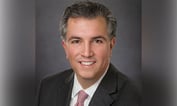Well-off people can easily go broke paying for sky-high nursing home care: First they deplete their own funds and then, eventually needing Medicaid, spend down nearly all the rest of their assets to qualify for that government program designed for low-income individuals.
The way to avoid this terrible situation is to put in place a Medicaid asset-protection plan early on. One powerful solution is to buy a single-premium immediate annuity, says attorney K. Gabriel Heiser, an elder care Medicaid expert, in an interview with ThinkAdvisor.
For 25 years, Heiser focused exclusively on elder law, and estate and Medicaid planning. He is author of “How to Protect Your Family’s Assets from Devastating Nursing Home Costs: Medicaid Secrets” (Phylius Press 2017-11th updated edition).
Sixty percent to 70% of nursing home patients are on Medicaid, says Heiser.
In determining eligibility, Medicaid differentiates sharply between “assets” and “income.” The potential Medicaid recipient is permitted to have only $2,000 in assets, though they can still receive certain income under certain circumstances.
In the interview, Heiser discusses a number of techniques — all of them legal — to shelter or reduce assets to qualify for nursing-home Medicaid.
One of the best, he says, is a so-called Medicaid-Friendly annuity, which essentially converts “countable” assets into income, which is exempt.
The average cost of nursing home care is $92,000 a year and much higher in New York and Hawaii, among other states. The average stay is two-and-a-half to three years. Care for a person with Alzheimer’s disease in a locked unit can come to more than $450,000 annually and is typically for a period of at least five years, Heiser says.
Though Medicaid wasn’t created for middle-class people “to pass their money on to their children at taxpayers’ expense,” Heiser writes, he reasons that it makes sense and isn’t unethical to “avail yourself of the laws” in order to minimize expenditures on nursing home care and indeed “pass those savings on to your children.”
Most folks make the mistake of waiting too long to plan for asset protection, says Heiser. They should begin at the first sign that their spouse, parent or sibling likely will need nursing home care.
Heiser was formerly chair of the estate planning committee of the Massachusetts Bar Association and an adjunct professor of the College for Financial Planning at David Lipscomb University. A professional version of his book, “Medicaid Planning: From A to Z,” is directed at attorneys, financial advisors and CPAs.
ThinkAdvisor recently spoke with the semi-retired Heiser, 68, on the phone from home in San Miguel Allende, Mexico. He revealed some of his Medicaid secrets and how they can help clients shelter their assets. Here are highlights:
THINKADVISOR: What’s critical to know about Medicaid?
GABRIEL HEISER: To qualify, you can’t have more than $2,000 in Medicaid-countable assets. So if you have cash in the bank or any other assets that aren’t on the exempt list, they’ll count toward the $2,000. That’s not a very high amount — but the point of Medicaid is that it’s supposed to cover the poor.
You write that hiding money and not reporting an asset on a Medicaid application is fraud.
Yes, fraud against the government. You’ll be disqualified for Medicaid, and there are also criminal penalties.
What about having income?
You can still qualify if you have, say, pension income. But there’s a cap of $2,205 a month for Medicaid recipients. However, some states have a rule that if your income is over that figure, you can direct your Social Security or pension into a trust — a Miller Trust, also known as a Qualified Income Trust. The trustee pays the money to the nursing home, and Medicaid pays the difference. Typically, the bills are going to be more than $2,000 a month. So even though you have income over the cap, you can still qualify by setting up that trust.
Suppose the “community spouse” — wife or husband of a Medicaid applicant or recipient — is living at home and earning income?
Those earnings are always completely separate, and there’s no cap. As of July 1, 2017, the minimum income that the community spouse is permitted to own [Minimum Monthly Maintenance Needs Allowance] is $2,030. If the community spouse has less than that, she or he can get some income from [their spouse] in the nursing home. Say the wife is living on Social Security of $1,000 a month. She’d be entitled to another $1,030 — or more — from her spouse’s income.
You write that Medicaid is actually a loan from the government.
Yes, and when the recipient dies, the state can come after the person’s estate to repay it. A lot of states never used to enforce that, but then the government clamped down.
How can you plan to avoid Medicaid’s going after your house?
If you’re married and your spouse lives in the home, the house is exempt no matter what the value. One technique for a single person would be to own their home jointly with another family member. You can get a “ladybird deed” that says upon my death, the house passes automatically to so-and-so. A number of states allow that. It’s terrible if someone doesn’t avail themselves of that because it’s just the price of a deed.
So a single person should take special precautions.
Right. Sometimes, if you didn’t do advance planning, the state will force the survivors to sell the house and repay the nursing home bill. Then if anything is left, it will go to the family members.
What if a couple has a joint investment account?
They should transfer all the assets to the name of the community spouse.
Suppose they have assets of, say, half a million dollars in the account?
They should get help from an elder law attorney. Sometimes there isn’t much you can do, and you just have to spend it down. Typically the elder law expert would recommend some combination of gifting and a Medicaid Planning annuity, and possibly an irrevocable trust. You can wait out the five-year lookback period for gifting and pay privately until the five years are up.
What if you do nothing?
That’s the worst thing because you’ll wind up spending all the money on the nursing home. They cost about $100,000 a year, and the average stay is two-and-a-half to three years. So you’d quickly go through that $500,000.
What about returns the investment account could be generating? Won’t those be counted?
That’s OK because starting 30 days after a spouse enters the nursing home, federal law says that the assets of the community spouse no longer count. So even if they won the lottery, it doesn’t matter. The good news is that once the individual qualifies, Medicaid doesn’t look at the community spouse’s assets again.
Please talk about an irrevocable trust and the Medicaid Planning annuity you mentioned.
The best idea would be to put excess money into an irrevocable trust five years in advance. The next best thing would be to make a gift into the trust with part of the money, which is counted as a gift and is therefore subject to a five-year lookback period. The other part of the money would perhaps go into a Medicaid Planning annuity, also known as a Medicaid-Friendly annuity. That turns an asset into an income source.








 September 21, 2017 at 08:04 AM
September 21, 2017 at 08:04 AM










